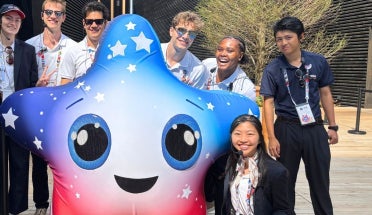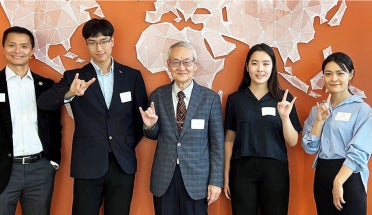
2020 Alumna Channels Passion for Global Issues into Social Impact
- Jun 11, 2020
- Global Alumni Relations
- by Suvi Bhalgat
Sitting on her childhood bed in Grand Prairie, Texas, 22-year-old Timia Bethea thinks about how, in a few days, she will graduate from The University of Texas at Austin with a virtual commencement ceremony. She is excited, anxious and a little unclear about what comes next. But she knows she has been preparing for this day for a very long time and feels confident about her future.
After spending four years studying international business at the McCombs School of Business, Bethea is leaving her alma mater with a wealth of experiences crossing various disciplines. From championing social projects to immersing herself in local cultural scenes, Bethea made major strides in understanding and shedding light on globally pervasive issues during her time at UT.
Bethea engaged in programs all over campus, from serving as a Resident Assistant in the Kinsolving Dormitory to working as a Peer Advisor at Texas Global, where she helped students considering Education Abroad programs find their best matches. But one of her greatest accomplishments at UT was winning the President’s Award for Global Learning, an experience she described as “surreal.”
The President’s Award For Global Learning is a prestigious grant extended to interdisciplinary teams of undergraduate students and faculty who seek to tackle the world’s most pressing issues.
Bethea’s team explored the issue of colorism on a global scale.
Colorism, sometimes referred to as skin color bias, is the presumption that lighter-skinned members of the same race are treated better because of their skin color. This display of prejudice is prevalent in every culture in a myriad of ways.
Looking further into the issue, her team’s research, titled The Color Complex, determined that skin bleaching, also known as skin toning or skin lightening, is one of the most blatant forms of colorism and that it is most common in West Africa.
After a year of preparation and research, Bethea and her team of student and faculty researchers headed to Ghana in the summer of 2018 to conduct several in-depth interviews with Ghanaians on their experiences with colorism.
“We wanted to talk about colorism and the stigma around it," Timia said. "But, it's so intangible. We wanted to show how it manifested in very tangible ways in everyone's life experiences.”

When they returned, they compiled their research and presented it in the form of an interactive exhibit on campus. Entitled the “Museum of Color,” it featured personal objects paired with intimate stories about interviewees’ experiences with colorism. They came together to educate and inform their audiences on what colorism is, how it manifests itself and its effects on society.
One of the most notable moments where Bethea recognized colorism in her own life was during the summer before college at a family reunion in Virginia.
“My sister has a darker complexion than me; she takes more after my dad," Bethea explained. "My mother is mixed, and I take more after my mom where I'm a little more on the lighter side. My grandpa was looking at me and my sister, and said, ‘Timia, you're going to be treated better in this world than your sister is.’”
Bethea was initially taken aback by how blatantly her grandfather made his point. However, she realized that, while his remark may have seemed blunt, it reflected his experiences being treated differently due to the color of his skin.
Another way she experienced colorism was through texturism. Bethea’s hair has always been important to her and a part of her identity. However, she recalls how negatively her family reacted when she wanted to go natural at 16 years old.
These experiences made Bethea keenly aware of colorism and other biases around her and cultivated her spirit for social impact. Including The Color Complex, she channeled this drive through the many different roles she held at UT.
As an RA, Bethea and her colleagues created a series of programming intended to help students embrace their natural and curly hair. “It provided a moment of time for people to talk about these things that don't necessarily get that much light,” she said of the program.
After returning from Ghana, Bethea took on a position as a peer advisor for Education Abroad programs. As a peer advisor, Bethea helped students choose from among more than 400 programs in 100 countries. She drew from her own experiences and pointed those interested in studying abroad to different destinations, funding opportunities and other helpful resources.
“I wanted to be a part of influencing people to really see the world and travel,” she said. “People always want to go to the same places. You can go to other places that have just as much value and can transform you in so many different ways. Don't limit yourself to what is a popular or acceptable study abroad experience.”
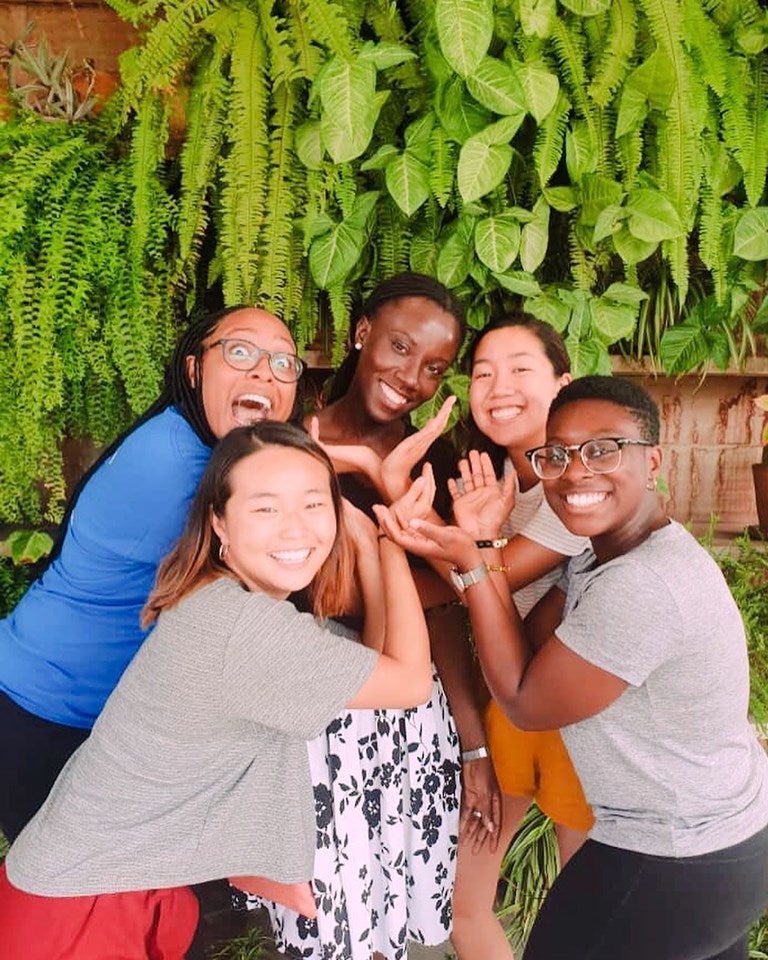
Bethea’s sundry experiences at UT are reflective of her curiosity and constant search for growth. That’s why she says she chose to major in international business. The major features a unique combination of coursework covering accounting, finance, marketing, and other facets of business as well as an emphasis on global cultures.
Initially, Bethea was on the fence about studying business. However, advice from her father as well as the world-class reputation of the McCombs school convinced her to pursue a B.B.A. Once she looked into the programs, she realized that concentrating in international business would allow her to gain valuable business expertise and skills while also enabling her to explore the world and social issues important to her.
“I have a really cool hybrid-like learning experience which has influenced a lot of what I do,” she said. “You learn business and how to think about it from a global context. It’s pretty holistic because every business is global nowadays.”
Having lived in Texas her whole life, Bethea was unsure about going to school in her home state. However, looking back at four years on the Forty Acres, she is content with her choice.
“To be honest, and I'm always trying to be honest, I did not want to go to school in Texas," she admitted. "But if I had to go to school in Texas, which my mom was praying for every night as I was graduating high school, the only place I really could've gone was UT. Austin cultivates such an environment that I'm drawn to: it's quirky, it's weird, it's open, it has a city type vibe to it. UT being in Austin was the biggest sell for me.”
She had immensely rewarding moments. After learning her team was a recipient of the President’s Award For Global Learning grant while in a statistics class, grateful tears welled in her eyes and she thought to herself, “It’s all worth it.” But, she also faced challenges. Throughout all of this, she had the support of her fellow Longhorns in the form of her peers and professors.
“Coming in, I don’t think I would've ever been able to say, ‘I love my teachers, I love my professors at UT,’” she said.
Her research team’s mentors changed her stance. The Color Complex had the support of McCombs senior lecturer John Doggett, communications associate professor Meme Drumwright and education professor Kevin Cokley. Together, they coached the team and left a deep impression on the four undergraduates.
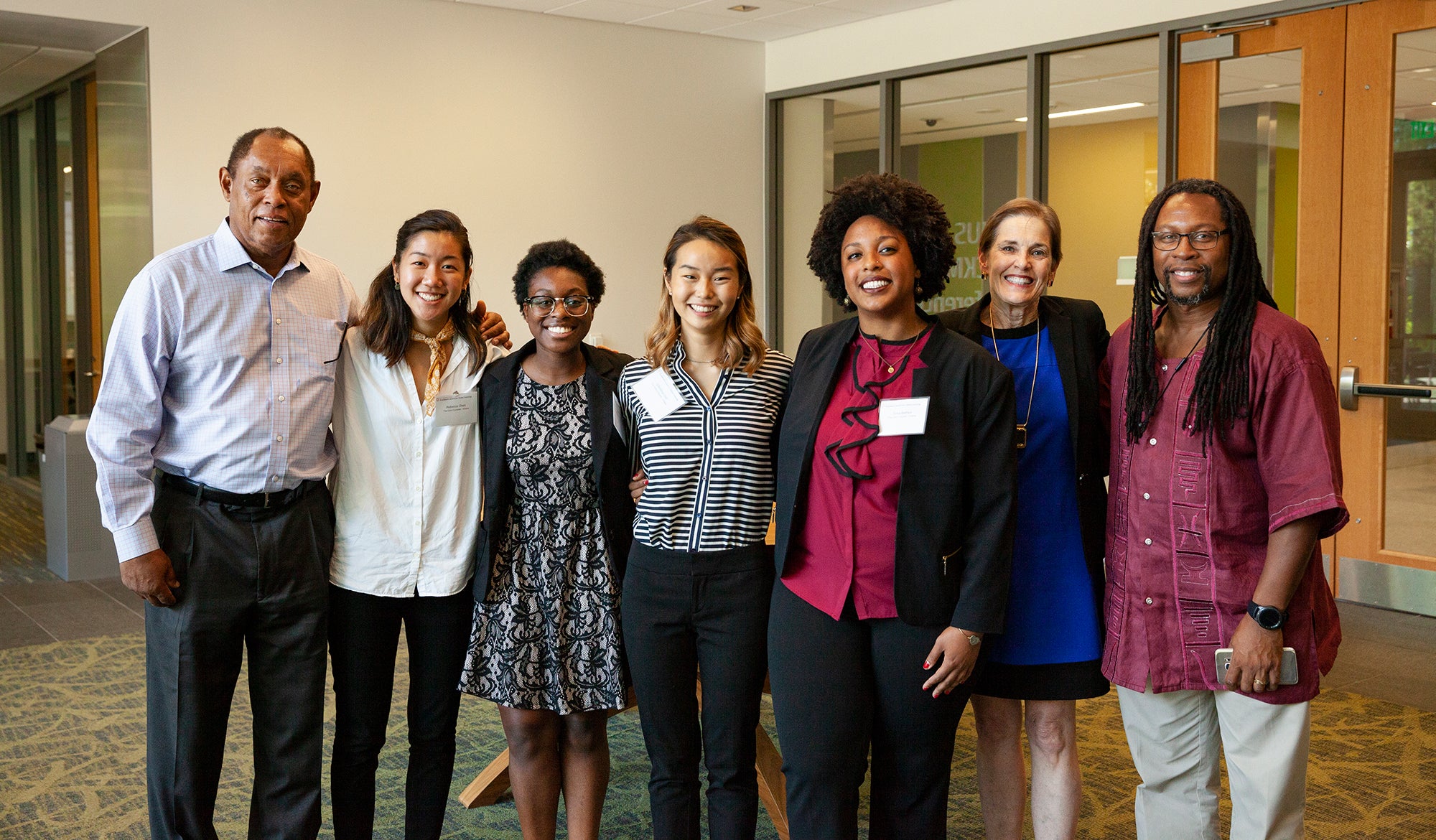
“I would say Doggett was the biggest influence on being passionate about what I do,” she said. “He gave our team a lot of wisdom. One of our team members, Vida, is really passionate about physical therapy, but she’s also really into baking and wants to have her own bakery one day. He literally just took us into bakeries and showed her what it means to start your own bakery. That's a mentor. That's a friend.”
As for The Color Complex, the team is still active. Each member is heading in a different professional direction — one of the givens of an interdisciplinary team. They are all leaving UT with an expansive network connecting them to professionals in different disciplines around the world. Currently, the team is compiling a portfolio of their work and research so audiences can interact with exhibits and other parts of their social campaign virtually.
After graduating, Bethea will be joining health and beauty company AB Brands LLC. There, she will be working as an assistant brand manager for their Earth Supplied hair care product line, channeling her global experiences and her passion for promoting natural hair into her work.
Now that she is finished with her degree, she feels the biggest adversity she faced during her time on campus was her first year exploring UT.
“Being a freshman is more difficult than what people talk about,” she said. “UT is such a really amazing school, so you get imposter syndrome. You feel like you don’t belong for a little bit. You don’t have your high school friends with you, and you’re having to literally rebuild yourself in this whole place.”
After her less-than-ideal freshman experience, she learned ways to cope with stress and balance her life.
“If you don't like the major that you picked, change it as soon as you can,” she suggests to incoming freshmen. “Or, figure out ways to love it and stick with it and just incorporate different aspects of what you really want into your major. You don't have to have it all figured out.”
After her experience with imposter syndrome and pressure to perform, Bethea understands the importance of self-reflection. She urges others to do the same by looking inward and taking stock of what is most important.
“At the end of the day, this is your life,” she said. “Keep your mental health in check. It's so easy for that to be tossed aside for some form of success or achievement that you won't even think about in the next two years.”
In the future, Bethea envisions herself pursuing her many interests and following a career path full of drive, motivation and passion.
“I love social impact, music, media, television — all that type of stuff,” she laughed. “I honestly want to do so many different things and so I hope to have maybe hit my fourth thing by the time I'm 30 and possibly run my own business. I don't know how that looks yet, but my dad always says the best thing to be is your own boss. That way, you know where you stand at all times.”
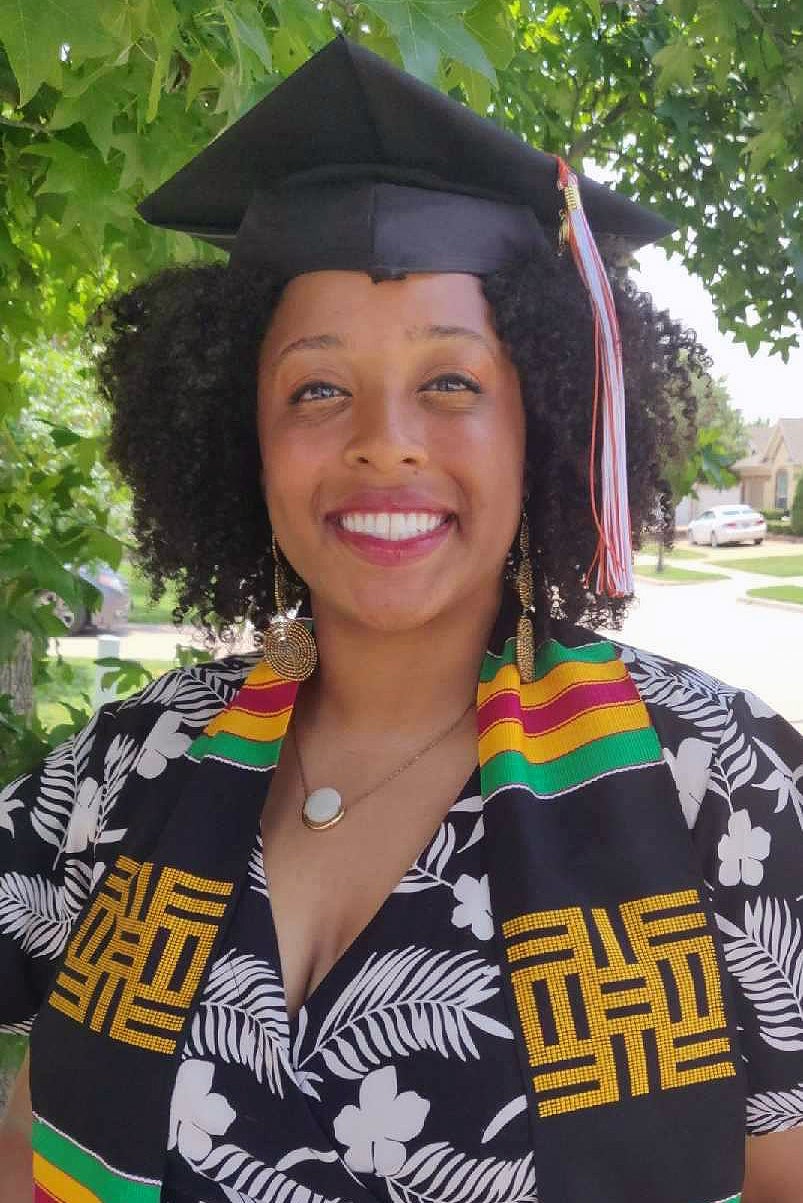
Ultimately, Bethea believes that the diverse components of her college career, like the President’s Award for Global Learning and her time in Austin, as well as the more challenging parts, such as adjusting to UT and the fallout of COVID-19, constitute a tremendous set of experiences that will impact her long after she graduates.
“You never see how much you grow until the end of it,” she said. “If you can have fun in the little things, you'll have a blast in the big things that happen to you.”
Bethea believes her time at UT has been like a time capsule. She says UT taught her how to be true to herself and soak up everything going around her, the good and the bad.
“Never take life for granted,” she said, taking a bite out of her taco. “Take life by the horns.”


